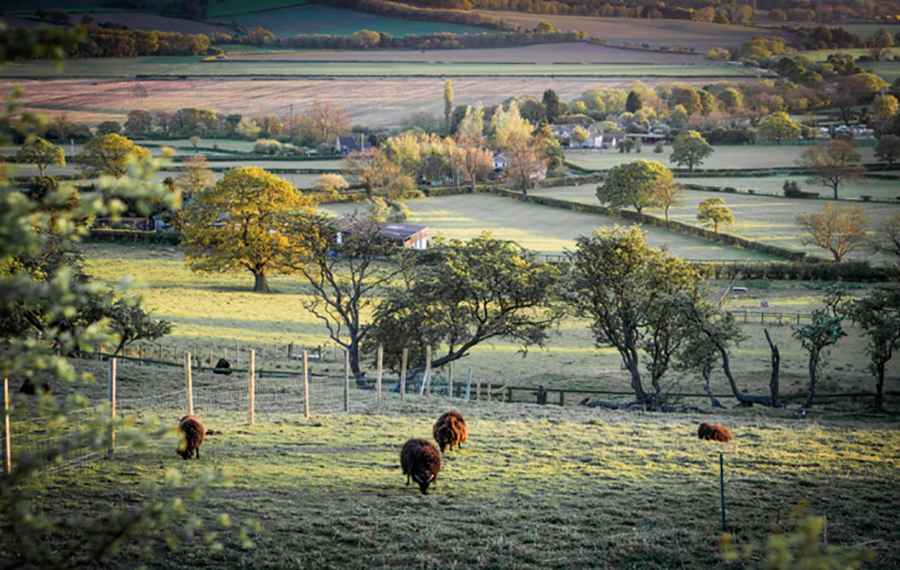7 Critical Factors for Navigating Rural England
The English countryside offers some of the most technical and rewarding driving environments in Europe. However, the transition from urban motorways to rural B-roads requires a shift in logistical planning. From unpredictable micro-climates to the unique etiquette of single-track lanes, these seven factors are essential for any driver planning an expedition into England’s more remote regions.

| Rural Logistics: Technical Overview | |
|---|---|
| Climate Risk | Rapid temperature drops & coastal "haars" (mist) |
| Road Architecture | Narrow single-track lanes with passing places |
| Power Standards | Universal Type G (230V) across all UK regions |
| Medical Access | NHS emergency coverage via 999 or 111 |
1. Prepare for Rapid Micro-Climate Shifts
In England’s high ground—such as the Peak District or the North York Moors—the weather is influenced by Arctic airflows and coastal moisture. Even in summer, temperatures can drop significantly once you leave the valleys. Fog (or "haar" in coastal areas) can reduce visibility to near zero in minutes. Expedition-grade waterproofs and layered clothing are mandatory, even for short summer treks, as the wind chill on exposed ridges is often underestimated.
2. The Logistics of Rural Transport
While the UK has an extensive rail network, it is often prohibitively expensive and rarely reaches the most technical road passes. For a true countryside expedition, a private vehicle is essential. If using public transport for transit stages, book "Advance" tickets to mitigate steep walk-on fares. However, once in the rural "deep," your primary concern will be fuel availability; many village pumps close early, and EV charging infrastructure remains sparse in the high fells.
3. Electrical Standards: Debunking the Regional Myth
Contrary to common misconceptions, the electrical standard is universal across all regions of England, Scotland, Wales, and Northern Ireland. Every region uses the **Type G (three-pin)** plug operating at 230V. When planning your electronics kit, focus on high-quality surge protectors, as rural power grids can be more susceptible to fluctuations during storms. One universal travel adapter is all you need for the entire British Isles.
4. Navigating Regional Dialects
While English is universal, regional accents—from the West Country burr to the Cumbrian dialect—can be thick and difficult for visitors to parse. Understanding local terminology for road conditions (such as "drifted" roads or "flooded becks") is vital for safety. Engaging with locals in village pubs is often the best way to get real-time intelligence on road closures or hazardous conditions that haven't reached official apps yet.
5. Accessing Emergency Medical Support
Medical support in the UK is managed by the National Health Service (NHS). In the event of a road incident or health emergency, dial **999** for immediate assistance. For non-emergency medical advice, dial **111**. Emergency care is provided to all visitors, but for non-urgent treatments, it is essential to have comprehensive travel insurance. In remote areas, be aware that the response time for ambulances may be longer due to the technical nature of the roads.
6. Strategic Travel Timing: Avoiding the Rush
Rural roads in England often serve as "commuter bypasses." Avoiding travel during peak rush hours (07:30-09:30 and 16:30-18:30) is critical. In narrow country lanes, meeting a high volume of local traffic or heavy agricultural machinery can lead to significant delays and difficult reversing maneuvers. Plan your high-intensity drives for mid-morning or early afternoon to ensure the road is clear for technical exploration.
7. Rural Etiquette and Tipping
In rural England, tipping is common but rarely mandatory. A 10% tip in a restaurant is standard for good service. In traditional country pubs, tipping for drinks is not expected, though "keeping the change" is a common gesture. The most important "etiquette" in the countryside, however, is on the road: always use "passing places" on single-track lanes and acknowledge other drivers with a wave—a small gesture that maintains the social fabric of rural driving.
Conclusion: The Prepared Traveler
The English countryside is a masterclass in picturesque but demanding geography. By correcting misconceptions about local infrastructure and preparing for the technical reality of rural logistics, you ensure that your focus remains on the road and the scenery. Respect the micro-climates, understand the lane etiquette, and keep your equipment ready for the unique challenges of the British interior.